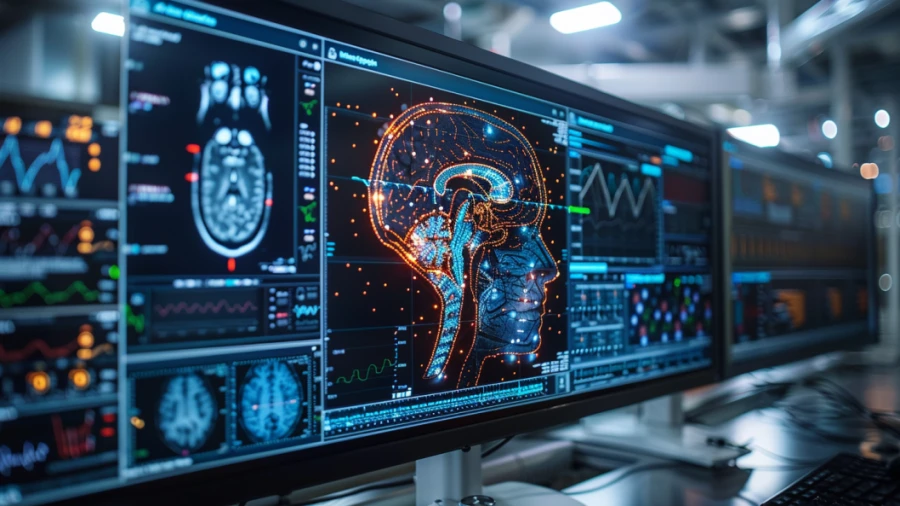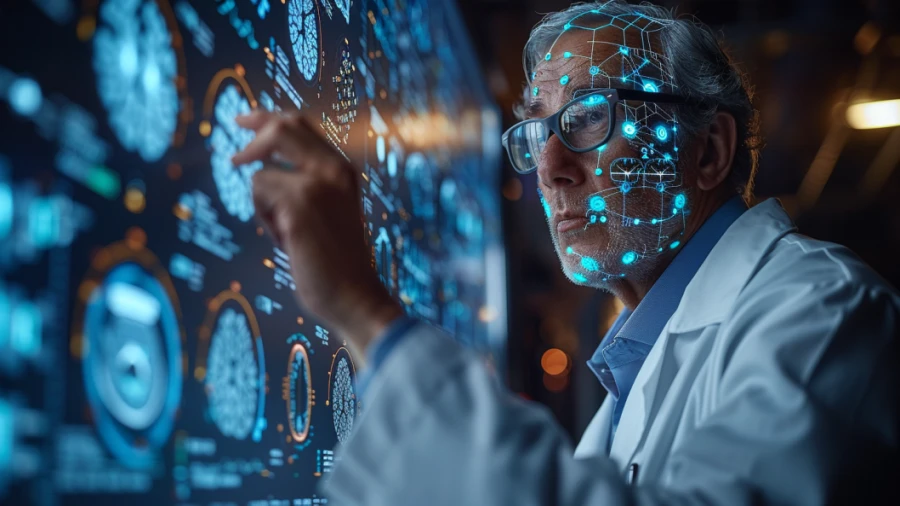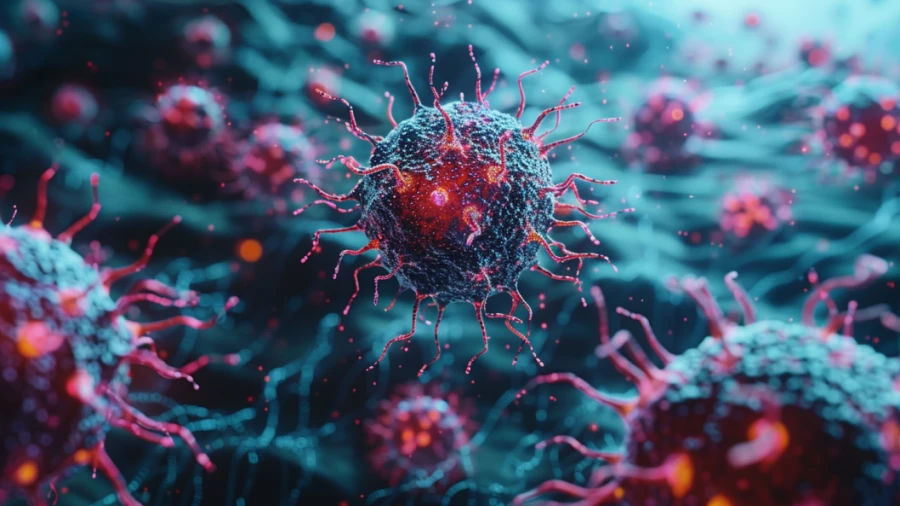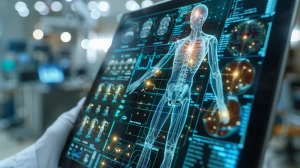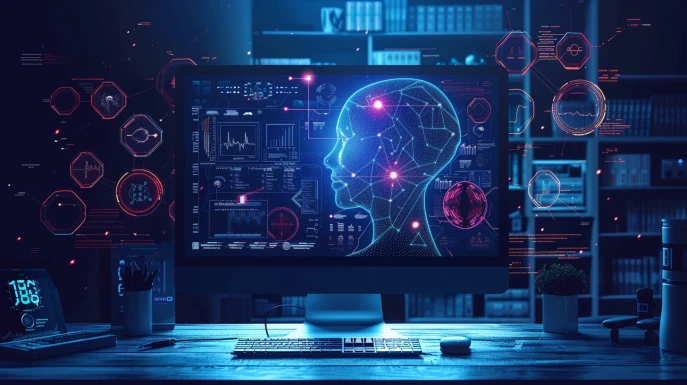
AI in Healthcare: Revolutionizing Medicine for a Smarter Tomorrow
Discover how artificial intelligence is transforming healthcare—from early diagnosis to personalized treatment—and explore the breakthroughs shaping the future of medicine.
by Niranjani
Updated Jan 31, 2025
On This Page
- From Diagnosis to Cure. AI’s Role in Early Disease Detection
- Personalized Medicine. Tailoring Treatments with Precision
- Drug Discovery 2.0. Accelerating Cures with AI
- Robotic Surgery and AI-Assisted Procedures
- Virtual Health Assistants. 24/7 Patient Support
- Ethical Challenges. Balancing Innovation with Responsibility
- The Future of AI in Healthcare. What’s Next?
- Conclusion
From Diagnosis to Cure: AI’s Role in Early Disease Detection
AI is redefining diagnostics with tools that spot diseases faster and more accurately than ever. Machine learning algorithms analyze medical images (X-rays, MRIs) to detect tumors, fractures, or early signs of conditions like Alzheimer’s. For example, Google’s DeepMind can diagnose eye diseases with 94% accuracy, while IBM Watson mines patient data to flag risks doctors might miss. Early detection isn’t just life-saving—it’s cost-saving.
Personalized Medicine: Tailoring Treatments with Precision
Gone are the days of one-size-fits-all care. AI analyzes genetic data, lifestyle factors, and treatment histories to design hyper-personalized therapies. Startups like Tempus use AI to match cancer patients with the most effective drugs, while apps like Ada Health offer symptom-checking tailored to individual health profiles. The result? Better outcomes and fewer side effects.
Drug Discovery 2.0: Accelerating Cures with AI
Traditional drug development takes years and billions of dollars. AI slashes timelines by predicting molecular interactions and simulating trials. Insilico Medicine used AI to design a fibrosis drug in just 18 months (vs. 4–6 years). Companies like BenevolentAI even repurpose existing drugs for new uses—like turning a rheumatoid arthritis drug into a potential Alzheimer’s treatment.
Robotic Surgery and AI-Assisted Procedures
Surgeons are teaming up with robots for unparalleled precision. The da Vinci Surgical System allows minimally invasive procedures with 3D visualization, while AI tools like Proximie enable remote guidance for surgeons in underserved areas. Post-op, AI monitors recovery, flagging complications like infections before they escalate.
Virtual Health Assistants: 24/7 Patient Support
AI chatbots like Babylon Health and Sensely offer instant medical advice, reducing ER visits and wait times. For chronic conditions, apps like Omada Health use AI to coach patients on diet, exercise, and medication adherence. These tools democratize care, especially in rural or resource-poor regions.
Ethical Challenges: Balancing Innovation with Responsibility
AI’s rise brings ethical dilemmas: biased algorithms, data privacy risks, and job displacement fears. For instance, facial recognition tools often misdiagnose darker-skinned patients. Regulatory frameworks like the EU’s AI Act aim to ensure transparency and fairness, but the debate continues. Trust remains the ultimate hurdle in patient-AI relationships.
The Future of AI in Healthcare: What’s Next?
Imagine AI predicting pandemics before they spread, nanobots delivering drugs inside cells, or brain-computer interfaces restoring mobility. Startups are already testing AI for mental health (Woebot) and aging reversal (Altos Labs). The next frontier? Merging AI with quantum computing for near-instant genomic analysis.
Conclusion
AI isn’t replacing doctors—it’s empowering them. By automating grunt work and unlocking data-driven insights, it lets clinicians focus on what matters: patient care. As we embrace this tech revolution, collaboration between innovators, regulators, and caregivers will ensure AI heals equitably—and ethically.
